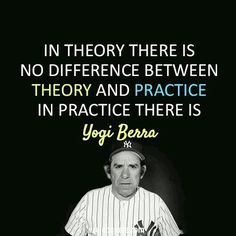Just out of curiosity, what is your actual historical experience with this strategy and with how much money?
No historical experience with this strategy. This is because when I was young and aggressive, I was 100% equities because a 60/40 portfolio did not make sense to me when you are young. Like most investors, I went thru both the bull markets and bear markets.
However, I discovered that I picked up a lot of knowledge during a bear market.....more so than a bull market. A lot of people never learned anything during a bear market...but I did. Part of my personality is to learn. I was mostly a passive investor but I started using 10% of my portfolio as an active investor so my portfolio was 90% passive and 10% active. I again acquired more knowledge and experience buying on the dips, etc but I never used more than 10% of my portfolio. With my portfolio 90% passive/10% active, am I a passive investor or an active investor?
As I got near retirement, I reluctantly went into the traditional 60/40 portfolio simply because a 60/40 portfolio made sense to me since I needed the liquidity. You really do not need liquidity when you are young because your paychecks acts as your liquid assets. This explain why I was 100% equities. After I retired in a 60/40 portfolio and gotten older, I realized that if I avoided even one or two bear markets, this will make a HUGE difference in my portfolio. My current strategy is focused on that one objective.
I was always familiar with treasuries. I started studying treasuries from a historical prospective. Example: The VUSUX performance in 2011 during the European Debt Crisis and in 2008 during the last recession
2011 25.11% Capital Return + 4.31% Interest Return = 29.41% total return
2008 17.31% Capital Return + 5.38% Interest Return = 22.6% total return
In 2011, treasuries yield went to 0.09% ....but why did VUSUX interest return 4.31%? Answer: VUSUX portfolio consisted of long term bonds purchased a long time ago earning an average of 4.31% When you own a 30 years bond of 4%, the interest does NOT drop to 0.09%. It only affects new buyers of treasuries.
Why did the treasuries capital return went to 25.11% and 17.31% in 2011 and 2008? Answer: Everyone panicked and shifted from stocks and demanded treasuries to avoid loss. This is a supply and demand situation. This means people who now own treasuries at 4% will see the value of their 4% bonds goes up because who wants to buy bonds at 1% when treasuries at 4% are more valuable.
I can't guarantee I will make 20% in treasuries and later another 20% in stock when I rotate from treasuries to super cheap equities. However, the historical patterns of treasuries cited above put me in a good position. Investors should learn about treasuries as a tool in dealing with bear markets. People may criticize this post...but I am OK with that since my portfolio performance is now a +15% YTD. This is the very first time that I departed from my 10% active trading restriction to "all in" with treasuries because of my convictions.

 by 2008 I learned about Wellesley. A lesson that served me well.
by 2008 I learned about Wellesley. A lesson that served me well. 
